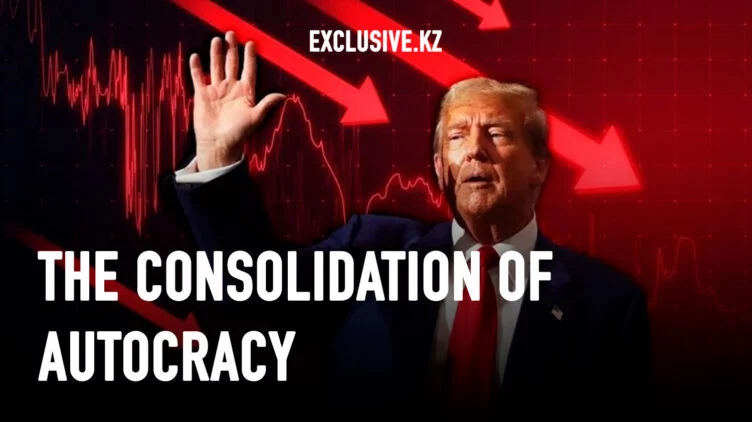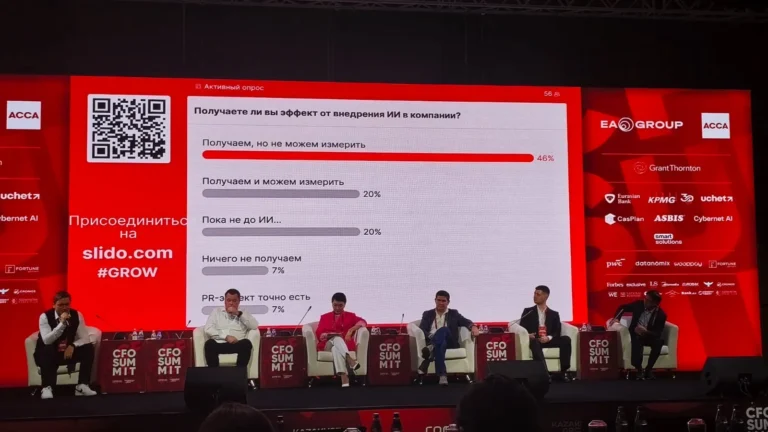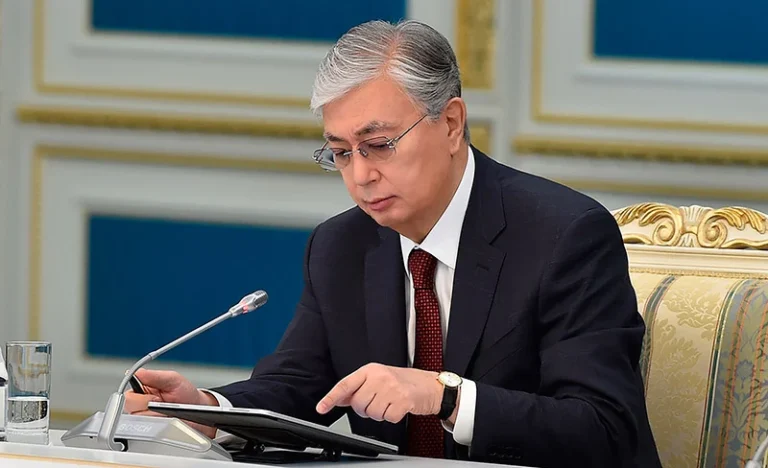Trump’s Tariffs and the Will to Power

In the days since US President Donald Trump unleashed his tariff tsunami on the world, economists, investors, and business leaders have almost universally questioned its rationality. As a policy matter, they are right to be scratching their heads. But Trump’s tariffs are not simply about policy. They are of a piece with the animating features of his MAGA (“Make America Great Again”) movement: contempt for science and the rule of law, persistent lying, and a propensity for irrational theorizing.
We have witnessed this embrace of unreason before, accompanied by similarly grandiose assertions of power. Hitler’s well-known fascination with Theosophy, Gnosticism, and eugenics was not an isolated phenomenon. During the 1930s, psychoanalyst Carl Jung’s idea of self-growth or “individuation” was viewed by many (including Jung) to be the special destiny of the Aryan race. The well-known Eranos gatherings during this period, which included esteemed scholars such as Mircea Eliade (who publicly supported Romania’s fascist Iron Guard), Henry Corbin, and Gershom Scholem, have been shadowed (not entirely fairly) by the taint of anti-Enlightenment politics.
For Trump, tariffs are about much more than a change of economic policy. They are part of a toolkit for political and cultural transformation. April 2 was “Liberation Day.” Trump sees himself as single-handedly and fundamentally altering the global order by a Herculean act of sheer will. To be sure, Trump’s tariffs are likely to make life materially worse for people around the world – not least Americans. But the particulars matter less than the heroic spectacle itself, the leader’s demonstration of MAGA’s capacity to rivet our attention by arousing shock and awe. To borrow the Silicon Valley mantra (which echoes in Gnostic reveries), one must move fast and break things to release creative energy, including the spirit of the homeland. Mystical leaders liberate crippled instincts from conventional cultural shackles – like the “wholly incongruous Christianity” that, as Jung put it, had been “grafted upon the stumps” of the Aryan spirit.
Who else could mobilize such transformative forces but the great leader – the one who, as Nietzsche put it, carries chaos within to give birth to “a dancing star”? That’s the MAGA pitch. The test follows: Are you willing to accept the pain that ensues? This is less an implementation of policy than a collective initiation rite, or a massive psyop. As Soviet propagandists understood, inducing friends and foes alike to repeat obvious falsehoods is a reliable test of power.

So is declaring a state of emergency, as Trump did in order to justify his tariffs. Declarations of this sort embody a claim to ultimate sovereignty. As the Nazi jurist Carl Schmitt wrote, the executive decision to initiate a “state of exception” determines what sovereignty means in practice. It is a self-fulfilling act: declaring an emergency is the emergency. It is one way in which the rule of law ends.
A state of emergency addresses both how the nation will survive and who will survive. That is why Schmitt separates people into friends and enemies. For example, Elon Musk’s definition of friends can be inferred from the companies he owns, such as X.AI, Neuralink, and SpaceX. On this reading, Musk’s friends are the evolving vanguard of humankind: those who are the most AI-informed, even cyber-enhanced, and perhaps destined to colonize Mars.
Enemies, by contrast, have no claim either to society’s concern or its resources. In this vein, Trump focuses above all on “illegal aliens,” whom he routinely describes as “vermin” and “animals.” By defining any “de-nationalized” class of “others” as a discrete sub-species, Trump places them beyond law’s safeguards.
Trump’s tariffs reflect the MAGA movement’s broader anti-Enlightenment impulses. He may claim to be concerned with “rebalancing” global trade, restoring America’s manufacturing industries, and raising revenue. But, more fundamentally, his tariffs are an expression of the will to power – spiked with a jolt of metaphysics.
The embrace of irrationalism in Europe during the 1930s facilitated the rise of fascism. Today’s mythic narratives – from AI-enhanced “evolving” consciousness to Russian Cosmism and Vladimir Putin’s “Noöcracy” (which lays claim to a species of Russian nationalism likewise rooted in man’s destiny to evolve, and which shares Musk’s desire to colonize other worlds) – serve a comparable function: totalizing power.
What Putin’s Noöcracy has in common with billionaires like Musk and the MAGA movement (including its New Age “MAHA” (Make America Healthy Again) contingent led by US Health Secretary Robert F. Kennedy, Jr.) is the cult of personality that lies at their center. Only Putin can serve as the Russian people’s savior. Only Musk can take his acolytes to the next level of evolving consciousness. Only Trump can make America great again by breaking the old order and ushering in the new. Submission to the leader is what makes it all happen.
Yes, the populist “spirit of the people” faction and Musk’s libertarian/Silicon Valley faction embody contradictory interests and goals. The intense rivalry and jockeying for influence within MAGA between Steve Bannon (for the populists) and Musk is the tip of the iceberg.
But this division has so far been modulated, and arguably exploited, by Trump and his loyalists. After all, it is the leader who exclusively embodies the mystical, creative-destructive spirit whose power can guide the nation to its destiny. Whether that destiny empowers the masses (as Bannon insists) or billionaire libertarians like Musk and Peter Thiel remains to be seen. It cannot be both.
For now, as Trump’s tariffs make clear, sound trade policy takes a backseat to both sides’ goal: the consolidation of autocracy. “Liberation Day” has put everyone who has thrown in their lot with MAGA on notice that without Trump at its center the movement that has promised them so much will collapse.
Copyright: Project Syndicate, 2025.





Все комментарии проходят предварительную модерацию редакцией и появляются не сразу.